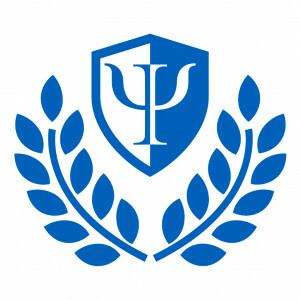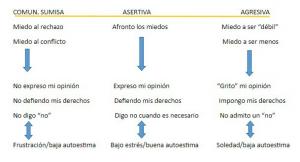Leadership: the new requirements necessary to be a good boss
An ancient Chinese proverb says: “Wild ducks follow the leader of their flock by the shape of their flight and not by the force of their quack.” He leadership has been a topic of interest to human beings from the moment we began to meet with others to ensure survival (we could say, from the very origin of our species).
The great milestones in history have been written thanks to the work of a good leader with his team. The “small milestones”, perhaps not as momentous but equally significant, such as delivering a project to time at work, also result from the relationship between a boss's leadership style and the group with which he or she works. works. Currently, the demands of the 21st century have led to the presentation of a series of new requirements necessary to be a good boss and lead a team. In this article we will address such a topic.
The challenges of leadership in the 21st century
The changes introduced at the turn of the millennium have permeated all areas of our lives, so it is expected that the organizational world will not be the exception. For example, working conditions have changed, shifting towards employment relationships mediated by technology. Remote work is becoming more common,
home office; also hybrid modalities and videoconference meetings. In those jobs where presence lasts, electronic devices are also involved in the work. work, and can be used as useful tools for solving a task, for communicating, or as ways of distraction.This context, therefore, has challenged entrenched modern notions of what a boss “should be”. Perhaps, even towards the beginning of the 20th century, bosses used to have ways of leading based on authoritarianism and recurring punishment. Charles Chaplin's film may come to mind for many of us, Modern Times, where the boss or foreman did not show interest in the working conditions of the factory and intended to suspend the lunch hour so that the workers could continue producing. Today that style of leadership is in decline. Postmodernism has changed the very conception of work: people no longer seek to obtain a job and preserve it throughout life, since modern notions of “progress”, “savings”, and “future” have fallen into disrepair. chopped. Now, the time spent in the same job is shorter; They are ephemeral since in postmodernity there are no assured certainties. This does not have to be accompanied by a value judgment: they are the changes that have taken place in light of the sociocultural and economic transformations of recent decades.
Leadership styles
Leaders, therefore, must adapt their forms of leadership to these historical modifications. Some theorists distinguish three leadership styles, classifying them into the following types:
- Authoritarians: These are the types of leaders who give rigid, vertical orders, and expect immediate obedience from others without counterargument. The plans are made differently from the rest of the group. Bosses who use this leadership style rarely recognize the effort or work of others and actions are oriented toward competitiveness and hyperproduction.
- Democrats: These leaders do not make suggestions, but rather ask group members for opinions regarding a decision. Decisions are made democratically, each individual expresses his opinion on his own behalf, and they are considered by the leader before making the decision.
- Participatory: Managers who use a participatory way of leading keep the group informed about the future, and allows them to propose changes, make decisions and debate. Participative bosses rarely make decisions and relegate this task to employees, offering them their full trust.
Many studies agree that democratic and participative leadership styles have positive effects on group performance. In the participative style, employees have greater confidence in their work and their ability to make decisions. It is the one that usually presents the best results on most occasions. The democratic style is very useful for creative problem solving and training to become leaders, since employees believe that their voice is heard and they perceive a certain autonomy in his work. For its part, the authoritarian style tends to yield worse results on performance and the relationship between the parts of an organization. organization, but may be appropriate when some employees are not yet familiar with the job and need direction concrete; or when company standards are not being followed.
- Related article: "Productivity Paranoia: what it is and what its effects are"
The characteristics necessary to be a good boss
These leadership styles are defined on a theoretical level as typical styles, that is, as ideal forms of leadership that rarely manifest themselves in a pure way in reality. A superior may tend to use an authoritarian mode of leadership, but sometimes consult the opinion of one of the members of the group. Bosses should not completely discard the less effective ideal types of leadership, such as authoritarian, but rather have enough flexibility to take on those qualities of this style that are relevant to a situation. In fact, flexibility is a fundamental characteristic for being a good boss, since it allows you to expand your repertoire of responses to different challenging situations. Responding in the same way to very divergent conflicts is not a good formula for leading.
On the other hand, there are certain general qualities that a good boss presents beyond the situation the group is going through. In other words, they are transversal characteristics of his personality or his way of acting that are sustained both in stressful moments and in instances of relaxation. Some of these features are:
- Empathy: It is essential to understand the individual situations that affect each of the members of the group.
- Assertiveness: Bosses must be able to clearly express their needs, their opinions, and be able to support them or question them depending on the situation.
- emotional intelligence: involves being aware of one's own thoughts and emotions, and also being able to recognize these states in others. It allows them to self-criticize their own actions, as well as observe how their decisions are perceived from the perspective of others.
- Vulnerability: They know the point at which a situation exceeds them, both emotionally and at the level of resolution capabilities. They can ask for help or alternative solutions from other people in the group. They are not afraid to express their defects, and that, far from being harmful, usually strengthens ties with the rest of the group as it makes them more human.
In short, the integration of these characteristics into the most appropriate leadership style for each situation makes up the necessary requirements to be a good boss today. The 21st century is largely determined by constant exposure to contingency and change, so it is It is key to have flexible leaders to adapt and create, together with the rest of the group, an optimal work environment for work.

Mediterranean School of Psychology
Mediterranean School of Psychology
Mediterranean School of Psychology
View profile
If you like train you in team management and leadership skills, the courses, postgraduate degrees and master's degrees Mediterranean School of Psychology They are perfect for you. In them you will find resources and theoretical-practical knowledge adapted to new trends in the business world, and all in an online learning format that is very easy to combine with the job.

